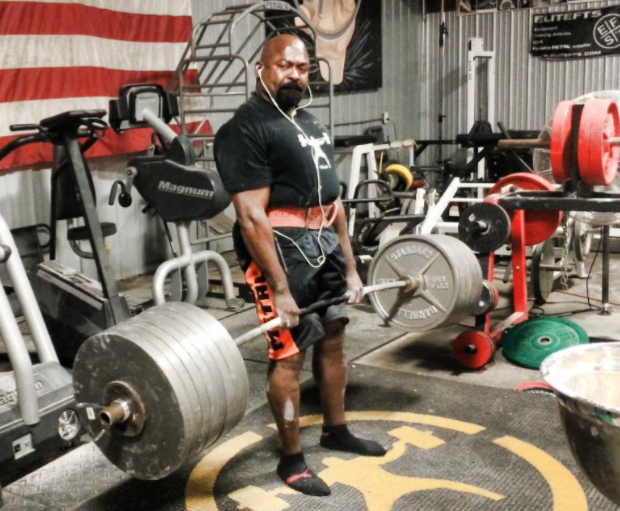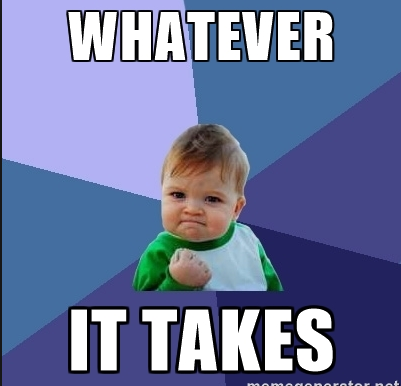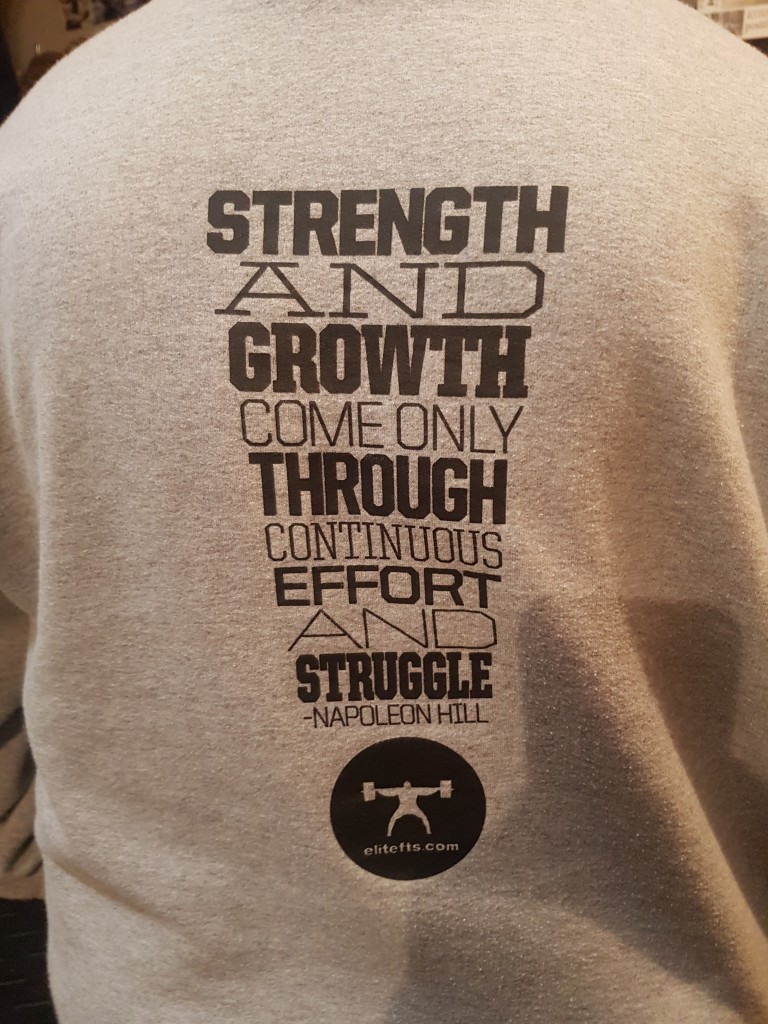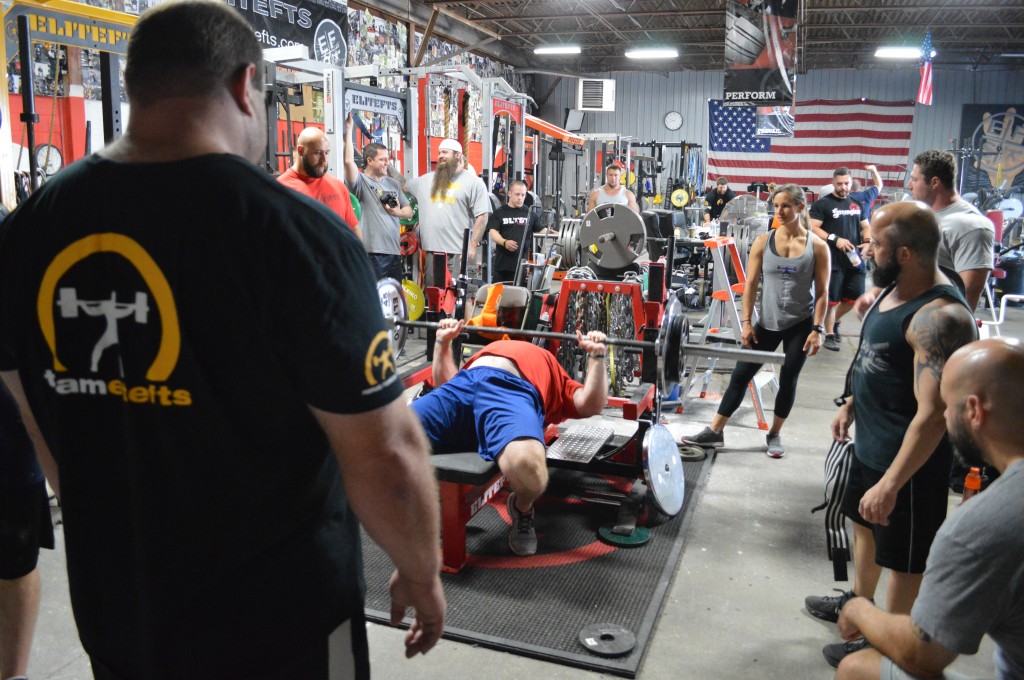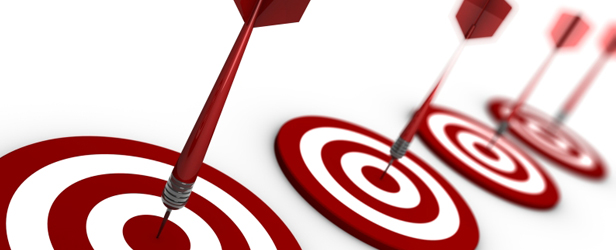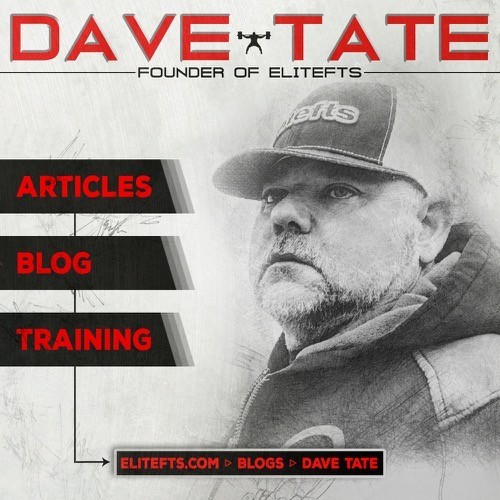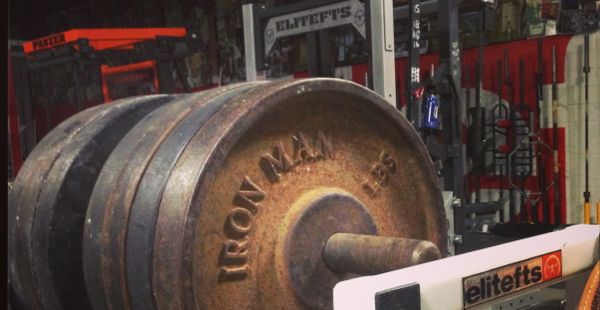
I've been working with and around elite powerlifters for over 30 years. Throughout this time, I have noticed particular traits I've been able to attribute to the success of elite-level lifters. Traits that separate those at the top-level from those who can never quite make it.
MAKING EXCUSES
Successful lifters don't spend their time making excuses for all their failures or shortcomings. Anybody can have a bad day; most people will. Anybody can have a bad meet; most people will. Most people will miss a lift. Most people will have to miss a training session for whatever reason. Mistakes, missteps, and shortcomings are part of the process. It's how one utilizes those mistakes to propel them forward that determines how much a lifter will achieve.
Those that make excuses for every single mistake they make are the ones that don't do well. PERIOD. Nothing is ever their responsibility. They take no accountability for any of their actions, even though they ARE their actions regardless of the context.
Successful lifters accept responsibility for their mistakes.
They take accountability for their failures.
They take accountability for their misses.
They take accountability for their successes.
They take accountability for their lifting.
They look for ways to get better and don't spend all their time trying to think of excuses for why they suck. Whatever it takes they do and/or learn.
Funny how that phrase "do whatever it takes" works. It always sounds good until they are faced with it. Then we can see that they actually mean they will do "almost" whatever it takes. In many cases, I have seen simple things like reading a book or article exceeds the limits of their efforts.
BUT...
They meme "DO WHATEVER IT TAKES."
ENERGY MAINTENANCE
Successful lifters exceed in energy maintenance. By this, I mean, they are great at controlling all energy expenditure. In the gym, they do what they need to get the desired results, anything more is just tapping into reserves that are going to make it harder for them to recover and move forward. This applies to training and their life outside of the gym. They live in a way that is going to keep that energy expenditure balanced to allow them to recover more efficiently. Successful lifters know that life stress hampers their ability to recover from even the simplest training session. When they add in a heavy, hard training session, they're doomed. The best lifters are the ones that understand that the complete body works as a unit in synergy.
Some lifters can spend their day stressing out over issues that they have with their girlfriend, an issue with work, internet drama, gossip, what ifs. They stress about their stress! Successful lifters find ways to manage all this. If there is such a thing as balance, it is knowing the consequences and mediating them. If energy expenditure is going to be high in one area for whatever reason, then other areas need to be adjusted. The stress of searching for and worrying about balance creates more imbalance. Successful lifters understand the consequences of the choices they make. It's not software design based on if X happens then Y occurs. It about X and Y happening at the same time and building upon each other.
Great lifters develop better skills to help them recover in all areas of life- better coping skills, communication skills, and training skills. Anything that depletes your energy stores can be trained. They learn how to re-frame certain situations to make them not as stressful. They know how to avoid situations that will not lead to their end game.
TRUSTING THE PROCESS
The most successful lifters have faith in the process. Some may mature as a competitive lifter very fast. Others may develop very slow. The competitive life of a lifter varies tremendously. Some people will be in the sport for three to five years, others will be in the sport for 30 or 40 years. Everybody is different. While I will agree that training may not have to be as complicated as people make it, every lifter is different.
Successful lifters learn to trust the process of their ability to be able to accommodate and change any variables of the training program that need to change when they need to be changed.
They understand the concept of being audible ready, auto-regulated, Cybernetic Periodisation or whatever you want to call it. A lifter at the top of their skills and the best of their ability are going to be able to make decisions very fast. They "feel" what they should do (or not do) and what is going to be best for their lifting career. That can be warming up for a training session and realize it's not going to happen. They may need to stop and back it down, or they could just need to ball up. Only they know this for sure. This is a learned and developed skill that beginners will not have (and why training groups and coaches can help so much).
I can list thousands of different scenarios. All these situations are the scenarios that the best lifters have already figured out. They have learned how their body adjusts and adapts, where they need to be during a training cycle, the risk of every decision that they make, and if they're willing to take that risk or not.
It's not all about risks. It's about who can make the right decisions at the right time. Those decisions may not always be correct, but it can't always be what's planned out on a piece of paper, designed before you get into the gym (for beginners, yes this is vital). Successful and the more advanced lifters will get to a certain point where pre-planning isn't going to be as effective. They learn that they have to rely on and TRUST their feedback- to make the right decisions to be able to move forward and to excel.
This is easier said than done. Every successful lifter I know who has made mistakes knew that they were walking the line. Had they trusted what their own feedback was telling them, they would have avoided the error --- but this is a never-ending battle. Win some - lose some. The smarter ones win more of these internal battles than they lose.
THE RIGHT PEOPLE
Successful lifters surround themselves with the right people. The best lifters, in my opinion, are the ones that will be training with groups of other lifters, either during the same time or in the actual group almost as a team. Within this group, there will be and should be lifters better than them, lifters at the same level, and lifters who are not as good.
When there are lifters that are better than they are, they have people they can learn from, people who can watch them for technical issues that others may not see. They have people that can verbally cue them during the execution of the lift to be able to fix technical problems.
Many lifters will have technical difficulties that will get verbal cueing after the set is over, which is great. It tells you what the problem is. But it doesn't do a whole lot to help the learning process of fixing it. To verbally cue it when the problem happens and lifter reacts to the cue is the first step of the learning process. The second step of the learning process is for the lifter to be able to cue themselves. The third is for it to become automatic. When you're telling the lifter after the lift, you're skipping the first part of the learning process.
Within the group needs to be lifters of the same level. This creates competition. This also creates an enhanced desire for learning. They want to be able to beat the other person. They are going to challenge them, and they are going to get challenged. It's going to put them at the same level to be able to be equal to try to kick the other fucking person's ass.
When you have those lifters that are above you that are helping to teach you and guide you, motivate you and educate you, but you're not going to be able to kick that lifter's ass for a while.
Having lifters less able than others allows the middle group to teach and build the beginners up. This not only helps the beginners, it engrains the teaching in the minds of the average group.
FOCUS ON WHAT THEY CAN CONTROL
The best lifters don't focus on the things that they can't control. They only focus on those things they can control. They can control what they eat. They can control the auto-regulation of their training. They can control who they train with, where they train. They can control who they hang out with. They can control who they help coach them. They can control warm ups. There are so many things that they can control.
Certain things that they can't control are dickheads in the gym. I just read an article the other day about how women wearing flashy gym attire is inappropriate to the gym for whatever reason, where in all reality, to a lifter who is serious about becoming better in their sport, they're not even going to know what the fuck anybody is wearing.
Successful lifters will be focused on their own training.
If they're focused on what everybody else is wearing in the gym, well then they should look for a different sport. They should be a gym member. They shouldn't be a powerlifter.
Successful lifters know this. When they go to the gym they feel like they are going to work - not to the fucking local social club!
There is a lot of shit in the gym that can't be controlled, everyone knows that. Successful lifters know not even to bother with it, just move on. If the gym can't keep bars you need to train, you buy your own or go to another gym. If you are reading this and thinking that I have no idea how bad it is you very well may be right. But I do know this- there IS someone who is a far better lifter than you lifting in a gym with the same conditions or worse than you are - and they have no issues about it.
Successful lifters are prepared to deal with this shit and worse because, in many cases, they don't have control of it and it helps prepare them for meets. Being fortunate to train with Louie Simmons at Westside Barbell for close to 15 years we were all trained in a way that we would never see or experience anything in a meet that was worse then we would see and deal with in the gym. This was on purpose and I could write a book of stories just on this aspect.
At a meet, you can't let anything throw you off-target because you have too much time, work, and money invested in it. When you get to a meet, there could be a lot of things that are going to happen that you can't control. The rack height might be wrong. The plates may be misloaded. The list goes on and on and on. The best lifters don't make bullshit excuses. They stay accountable. They strive and work every day to become the best lifter they can be.
This is the pursuit of the powerlifter.









